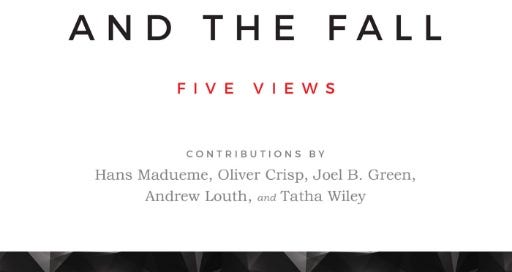All have sinned and fall short of the glory of God (Romans 3:23).
Maybe you've heard this from a preacher. And this:
If we say that we have no sin, we deceive ourselves, and the truth is not in us (1 John 1:8).
Welcome to the party. But don't make a decision just yet. You're late to the party as were the many nonliterate who read the same message in the Christos Pantocrator in the Eastern church and on the Judgment window in the West. Even Augustine was a latecomer. Believers are in this party. So are skeptics and captains. Before you pitch your tent in a camp you should know what's at stake. Having brought together five different scholars with different views, this is what Original Sin and the Fall: Five Views, edited by J.B. Stump and Chad Meister, helps you to do.
For instance, Hans Madueme's Augustinian-Reformed view presents the doctrines of the fall and original sin as dogmas that should stand unchanged despite historical and scientific claims. We do not only have a morally corrupted nature thanks to Adam, but we are also guilty of the actual sin of Adam. What's at stake is clear. These doctrines
are thread in a garment, so that pulling them loos threatens to unravel the entire biblical story.
Oliver D. Crisp's succinct moderate Reformed is not committed to but consistent with scientific and historical claims such as monogenism. In his rejection of original guilt what's at stake reverberates - how can a just God hold us culpable for the actual sin of Adam and how can those who lack moral agency (infant and the mentally retarded) exercise faith in Jesus?
Even if after reading the five views presented in the book and the responses of each contributor, one isn't inclined to make a decision or choose a side, one knows where the camps overlap. And who or what's to say one can't sit on the fence?





